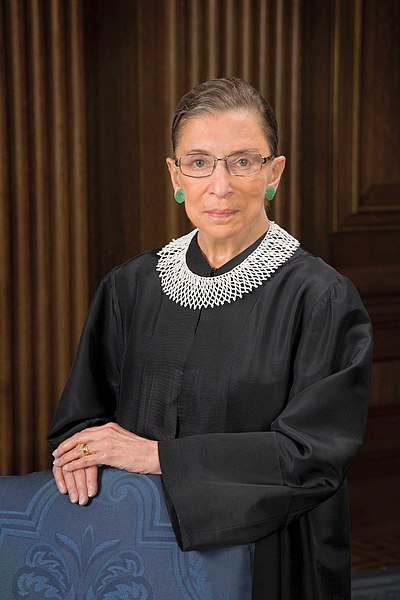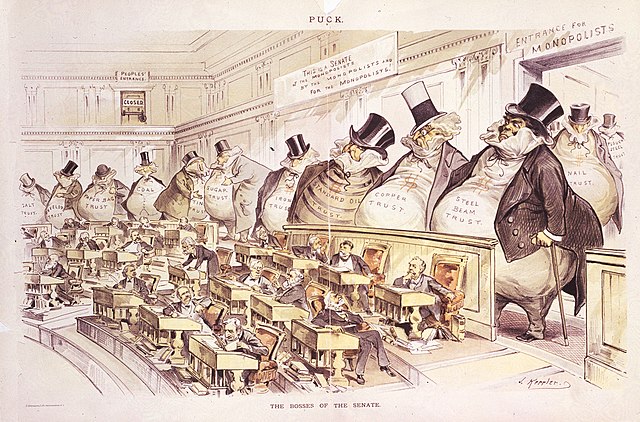Burwell v. Hobby Lobby Stores, Inc.
Burwell v. Hobby Lobby Stores, Inc., 573 U.S. 682 (2014), is a landmark decision in United States corporate law by the United States Supreme Court allowing privately held for-profit corporations to be exempt from a regulation that its owners religiously object to, if there is a less restrictive means of furthering the law's interest, according to the provisions of the Religious Freedom Restoration Act of 1993. It is the first time that the Court has recognized a for-profit corporation's claim of religious belief, but it is limited to privately held corporations. The decision does not address whether such corporations are protected by the free exercise of religion clause of the First Amendment of the Constitution.
Justice Samuel Alito was the author of the Court's majority opinion.
Justice Kennedy, joined in the majority opinion but also wrote a concurring opinion addressing the dissent.
Justice Ruth Bader Ginsburg wrote a stern dissent disagreeing with the Court's reasoning.
United States corporate law
United States corporate law regulates the governance, finance and power of corporations in US law. Every state and territory has its own basic corporate code, while federal law creates minimum standards for trade in company shares and governance rights, found mostly in the Securities Act of 1933 and the Securities and Exchange Act of 1934, as amended by laws like the Sarbanes–Oxley Act of 2002 and the Dodd–Frank Wall Street Reform and Consumer Protection Act. The US Constitution was interpreted by the US Supreme Court to allow corporations to incorporate in the state of their choice, regardless of where their headquarters are. Over the 20th century, most major corporations incorporated under the Delaware General Corporation Law, which offered lower corporate taxes, fewer shareholder rights against directors, and developed a specialized court and legal profession. Nevada has attempted to do the same. Twenty-four states follow the Model Business Corporation Act, while New York and California are important due to their size.

The New York Stock Exchange (headquarters pictured) is the major center for listing and trading shares in United States. Most corporations are, however, incorporated under the influential Delaware General Corporation Law.
"The Bosses of the Senate", corporate interests–from steel, copper, oil, iron, sugar, tin, and coal to paper bags, envelopes, and salt–as giant money bags looming over senators
The state of Delaware is the place of incorporation for over 60 per cent of Fortune 500 corporations. In 1999, from 6,530 publicly traded nonfinancial firms in the US, 3,771 (57.75%) were incorporated in Delaware, 283 (4.33%) in California, and 226 (3.46%) in New York.
In Citizens United v FEC, the US Supreme Court in a 5 to 4 decision removed the power of state and federal legislatures to control unlimited spending by corporations on political campaigns, reasoning that corporations are "persons" under the First Amendment.







